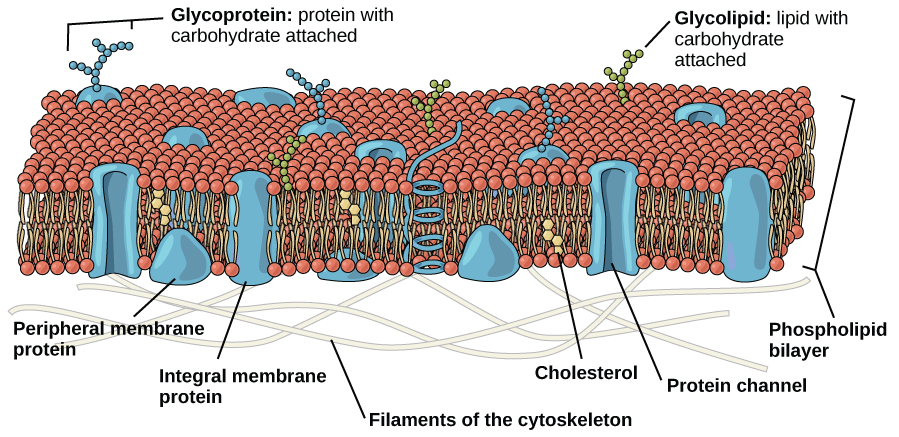- The surface of some eukaryotic cells are decorated, clothed or masked by certain carbohydrates bound to proteins (glycoprotein) and lipids (glycolipids).
- This carbohydrate rich filamentous layer is called cell coat or glycocalyx.

Functions of cell coat
- It protects the cells from mechanical and chemical damage.
- It provides a micro environment for the cells.
- It helps in adhesion of cells,
- It helps in recognition of cells.
Cytoplasm
- The part of the cell which occurs between the plasma membrane and nuclear envelope is called cytoplasm (Kytos-hollow, plasmo-form).
- It is the site of all biosynthetic and bioenergetic functions.
- Cytoplasm and nucleus constitutes the protoplasm.
- Protoplasm is considered as the Physical basis of life’ as it performs all the activities of living beings.
- The cytoplasm is sometimes described as non nuclear content of protoplasm.
- Cytoplasm is a colorless, homogenous, translucent, amorphous and colloidal fluid. It contains 75 to 85% water, 10 to 20 % protein, 2 to 3% lipid, 1% carbohydrate and 1% organic components.
- It also contains dissolved nutrients, numerous salts and acids to dissolve waste products.
- The peripheral part of cytoplasm is normally non-granular and clear and is called ectoplasm.
- The inner portion is granular and less viscous and is known as endoplasm.
- The viscous fluid of cytoplasm in which cell organelles are embedded is said to be the hyaloplasm or kinoplasm.
Functions of cell coat
- The cytoplasm serves as a molecular soup where all the cellular organelles are suspended and bound together by a lipid bilayer plasma membrane.
- It is a very good conductor of electricity.
- It gives support and protection to the cell organelles.
- It helps movement of the cellular materials around the cell through a process called cytoplasmic streaming.
- Further, most cellular activities such as many metabolic pathways including glycolysis and cell division occur in cytoplasm.
